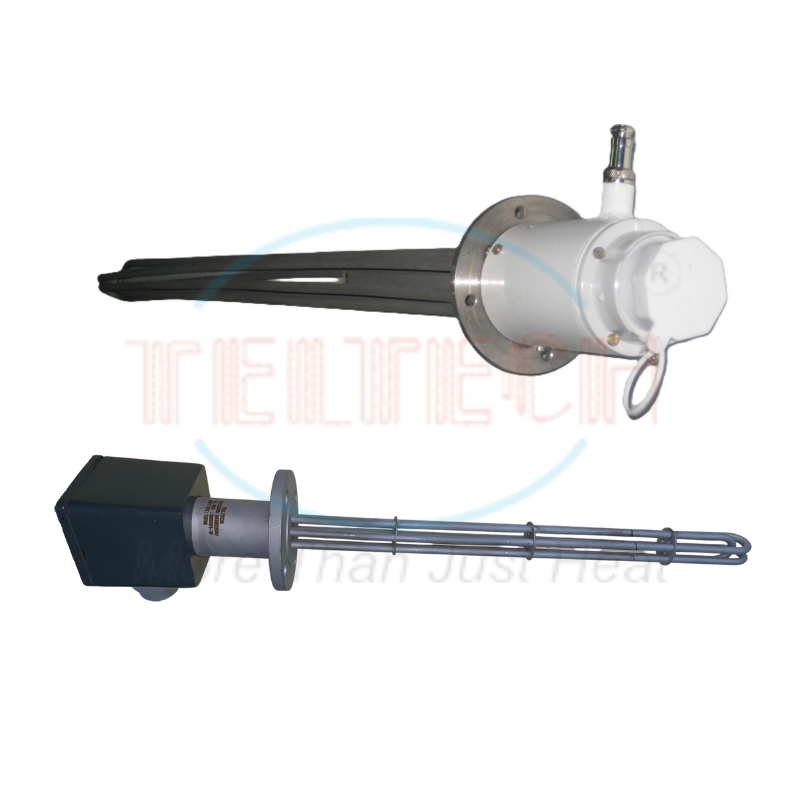
Flameproof heaters are available in a wide range of power ratings to suit various applications:
Duct Heaters: Up to 500 kW, suitable for heating air in duct systems and industrial processes.
Process Heaters: Up to 1,000 kW, with larger ratings achievable by combining enclosures.
Immersion Heaters: Customizable power ratings depending on application requirements.
Standard operating voltages include 230 V single-phase and 415 V three-phase AC at 50 Hz, accommodating various industrial power systems.
Flameproof heaters are classified into temperature classes (T1 to T6) based on their maximum surface temperature, ensuring compatibility with the ignition temperatures of surrounding explosive gases or dust.
Sheath Materials: Depending on the application and the medium being heated, sheath materials can include stainless steel (AISI 304, 316, 321), Incoloy 800/825, Inconel 600, Monel and Titanium, offering corrosion resistance and durability.
Enclosure Materials: Flameproof enclosures are typically made from cast aluminium alloy LM6 or carbon and low alloy steels, providing robust protection against explosive environments.
Flameproof heaters commonly feature IP66-rated enclosures, ensuring protection against dust and powerful water jets, suitable for harsh industrial environments.
These heaters comply with international safety standards, including ATEX and IECEx certifications, indicating their suitability for use in explosive atmospheres (Zones 1 and 2) and various gas groups: IIA, IIB, IIC (Available on request).
Maintaining process temperatures in pipelines, reactors, and storage tanks containing flammable substances.
Heating air or gases in duct systems within hazardous areas, ensuring safe and efficient operation.
Immersion heaters for heating flammable liquids, such as crude oil or solvents, in storage tanks or process vessels.
Integrated thermostats or thermocouples prevent overheating, maintaining safe surface temperatures.
Designed to contain any internal explosions, preventing ignition of the external hazardous atmosphere.
Sealed elements and enclosures prevent moisture ingress, ensuring reliable operation in humid or wet conditions.